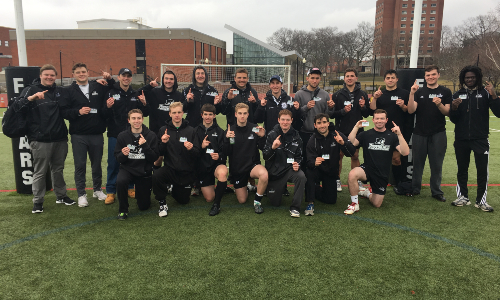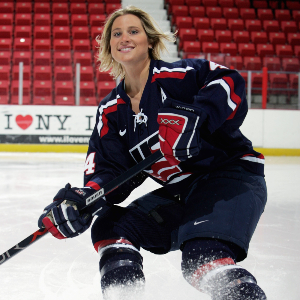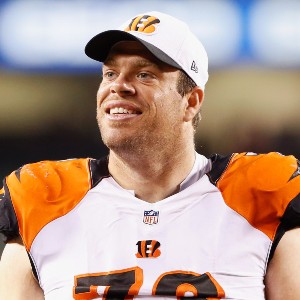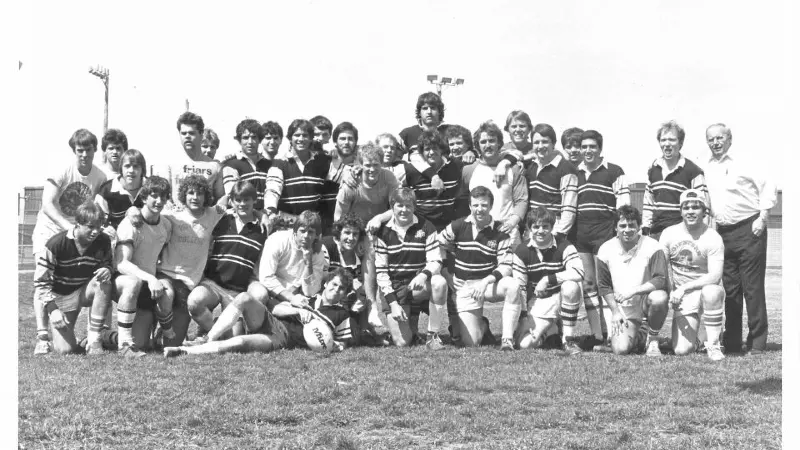
While my experience playing rugby was overwhelmingly positive, I did sustain two concussions playing for the Black Pack, briefly losing consciousness both times. I was given immediate attention by players, coaches, and athletic trainers, so my injuries were by no means ignored. But looking back, the experience taught me how much more club rugby could learn about the aftermath of concussions and brain trauma. As a sport, we need to recognize that these hits are more than just dings and head knocks, and that it’s not just the most severe concussions that count. Any hits to the head have dangerous cumulative potential.
The goal of the Foundation’s My Legacy campaign is to honor those who are contributing to research and awareness, and to encourage others to join in the cause. When I reached out to the team about participating in the My Legacy campaign during Brain Pledge Month, the players and coaching staff enthusiastically embraced the opportunity. Head Coach Mike Cox has been with the Black Pack since 2009 and hopes that, by raising awareness about concussions and Chronic Traumatic Encephalopathy (CTE), the club can contribute to a cause greater than just a winning or losing season. “You know what? When it comes to this, it’s not about rugby,” said Coach Cox. “It’s about the players.”
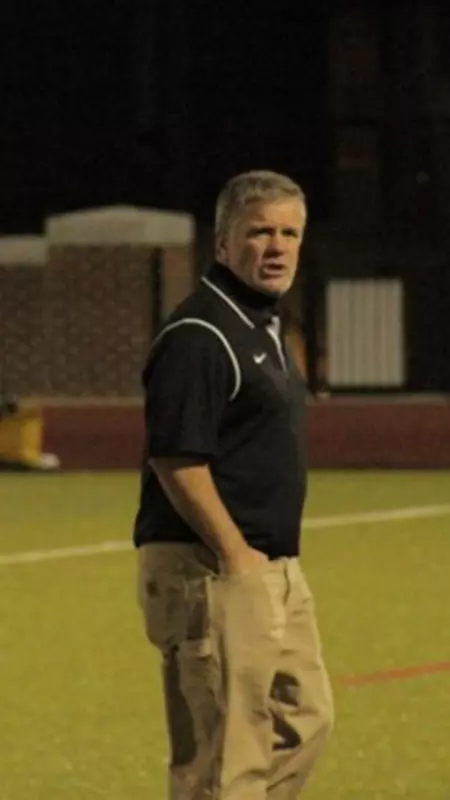
At the national and international levels, some rugby teams are trying to improve their concussion response by hiring spotters to monitor players and by having multiple athletic trainers available to care for athletes. But as a college club team, the Black Pack’s ability to hire spotters or extra trainers is limited by funding – an issue we see throughout youth and high school sports as well. Unable to utilize as large a medical team as a professional club, the Black Pack recognizes the power of being educated and banding together.
Senior Captain Cameron Hughes, whose older brother captains the USA Rugby 7’s Olympic team, said: “Rugby is like a brotherhood and we need to look out for everyone’s long-term interests. I think it has to start with teammates, and if your teammates are prepared to say ‘maybe you need to go get checked out’ then it will eventually develop into opponents being able to say that to each other in a fair and justified way.”
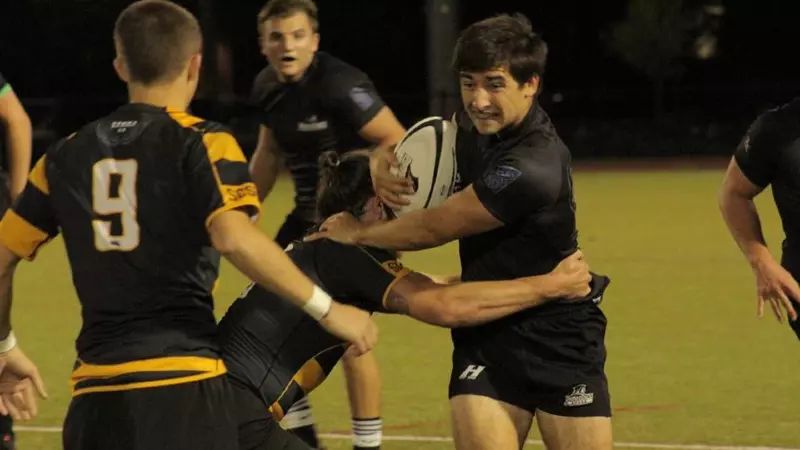
Hughes grew up playing rugby in England and is a seasoned leader. When asked how he felt knowing that nearly the entire team was pledging, Hughes, who has suffered at least two concussions himself, said, “I’m really proud of the boys. It’s a great cause so I’m glad that they’ve all stepped up to help out. I’m sure more schools would do the same if they were just presented with the opportunity. I think once you understand it and once you have someone explain what you could do to help, it really doesn’t take away from you doing anything else.”
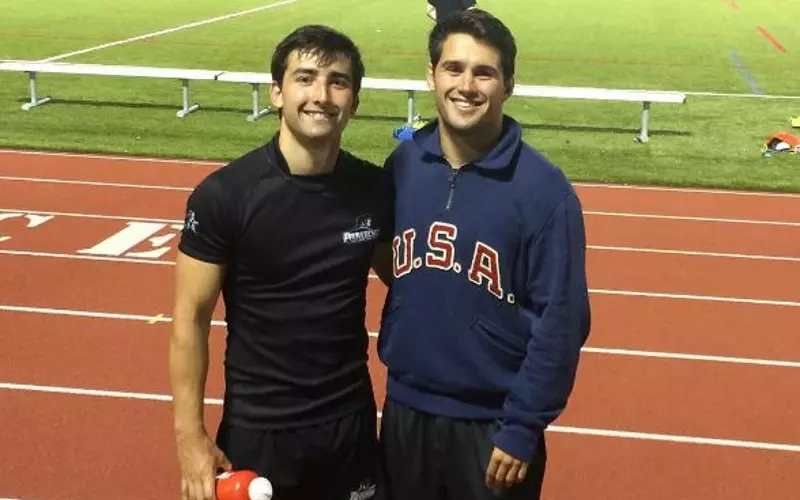
Attention is most often paid to research on head trauma and CTE in professional sports, but the research conducted at non-professional levels is also crucial. Researchers at the VA-BU-CLF Brain Bank have diagnosed CTE in 91 out of 95 former NFL players, and in amateur football players as young as 17. The disease has also been discovered in professional and amateur athletes who played rugby, hockey, and soccer, to name a few. When athletes choose to pledge their brain and speak up about this issue, they are helping to raise awareness, improve education, and promote much needed research at every level of their sport.
Senior Captain Tadas Jalinskas experienced several concussions while playing high school football and knows this issue shouldn’t be taken lightly.
“Cam and I take concussions very seriously. Injuries in general we take very seriously. If we ever see something, we pull the kid aside to talk to him and figure out what’s up and Coach Cox does the same thing. It’s talked about on the team.”
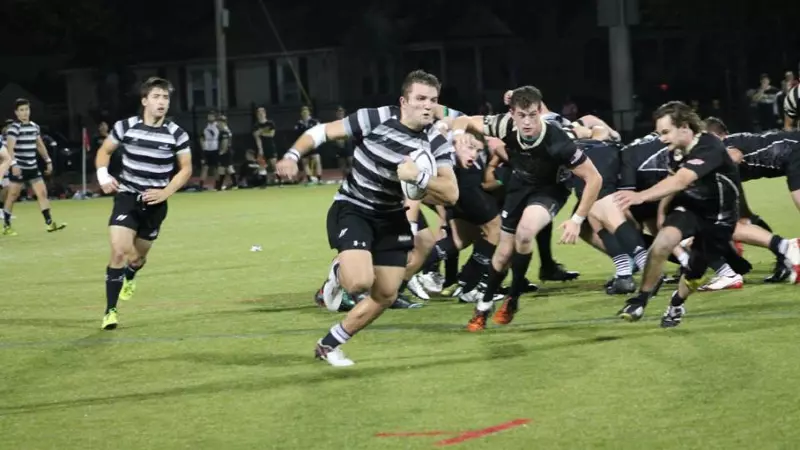
Jalinskas is a formidable player on the field and he has arrangements to try out for the Lithuanian National team following the spring rugby season. If all goes well, he plans to attend graduate school in Lithuania while he plays. But with this pledge he is thinking much further ahead. “Our careers are almost over but we have the rest of our lives to look forward to,” he said. “We don’t want to have any injuries like concussions that could be problematic down the line.”
Rugby is the fastest growing team sport in the US and it is attracting serious athletes to club teams throughout the country. The International Rugby Board estimates participation at close to 500,000 players and counting in the US. We hope that as the sport continues to grow, awareness about its potential risks will grow as well so that athletes can make more informed decisions.
The Black Pack has certainly done their part. Of the 30 players from Providence College who have made the pledge, many also played high-impact sports like American football, hockey, or lacrosse and some were wrestlers and boxers before finding rugby. These players have taken a tremendous step toward raising awareness about head trauma and understanding CTE by making the pledge. While the issue is intimidating, and it should be, it’s important to remember the power that clubs like the Black Pack have in banding together in order to improve the sport for the next generation of ruggers.
The team kicked off their spring season this past weekend in a tournament at Babson College. We wish them luck in their march to nationals.
Join the Black Pack and take the pledge here.
